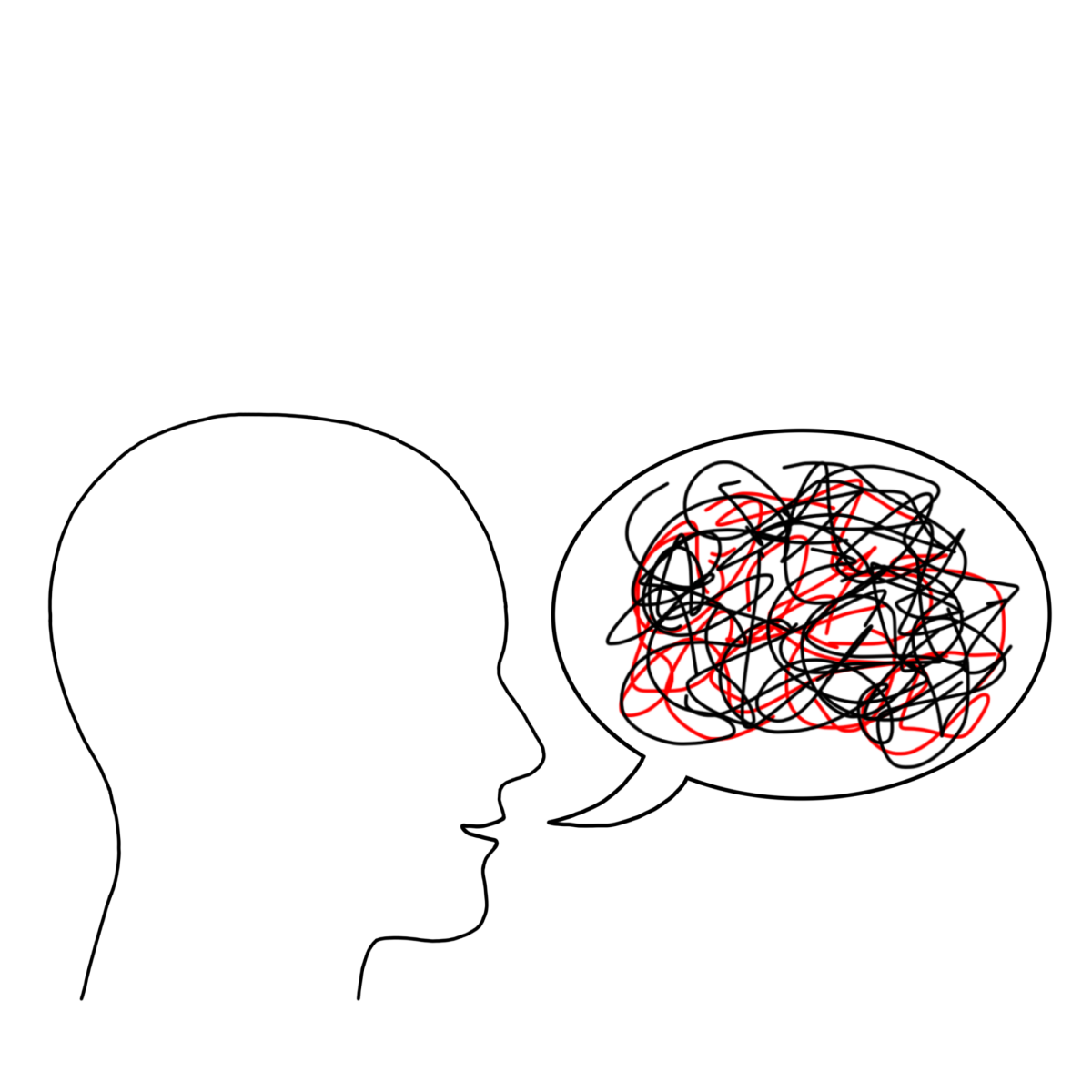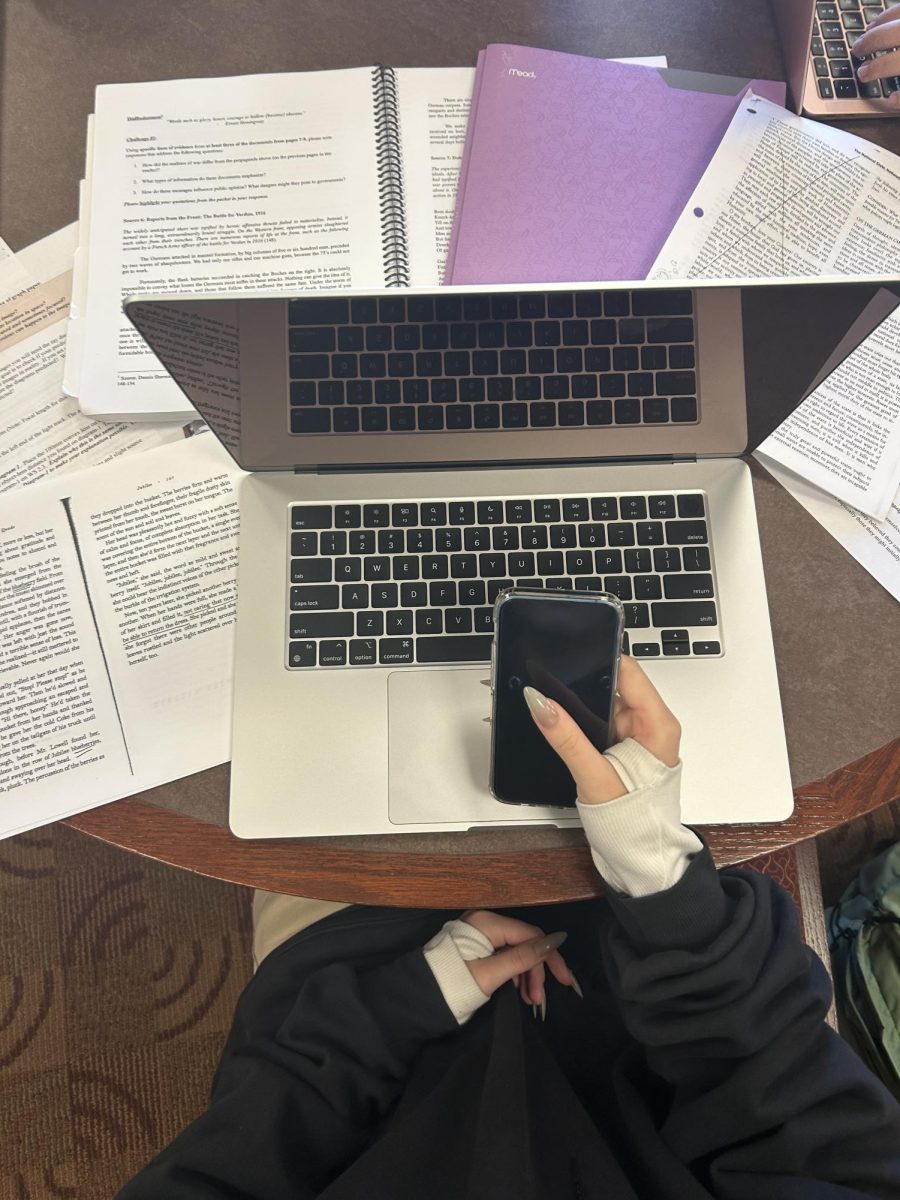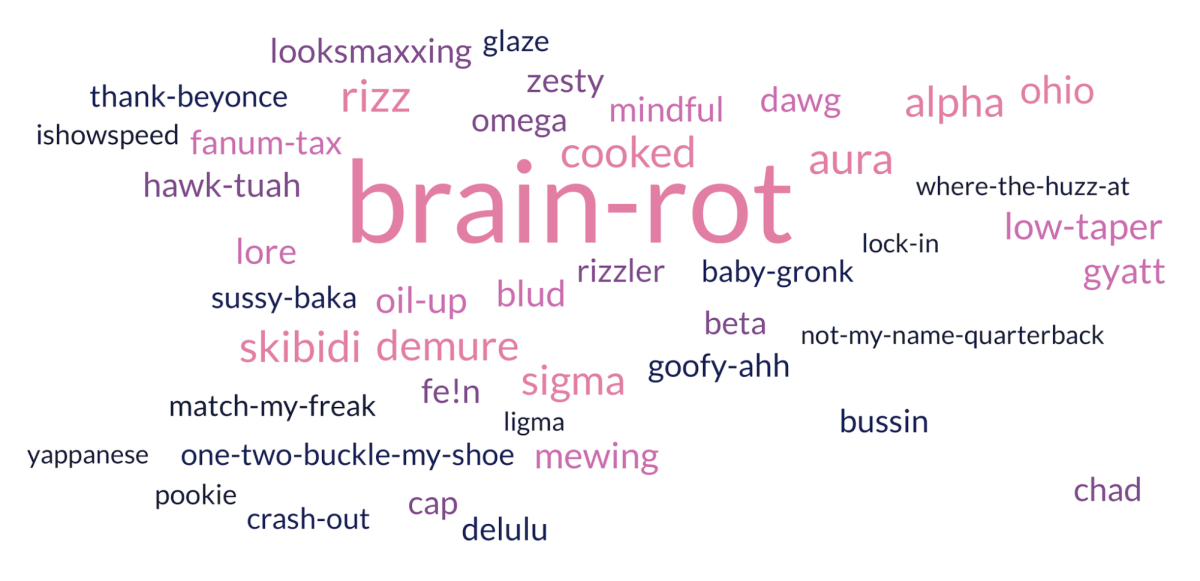It happens every day. A friend is reading a sad book in English class, and they tell you it’s “making them depressed”; a whiteboard is not fully erased, and someone whispers that it’s “triggering their OCD.” These seemingly harmless phrases have very real consequences. Colloquial misuse of psychiatric language leads to misunderstanding of mental illnesses and hurts those who are actually suffering from them, even if the intent is not to harm anyone.
This colloquial misuse also minimizes and simplifies mental illnesses, according to a Bishop’s student with bipolar II, who asked to remain anonymous and will be referred to as Taylor. According to Taylor, the chronic misuse “inevitably flattens the disorder itself and creates misconceptions of what mental health disorders actually are. Bipolar is more than mood swings. OCD is more than tidiness. Depression is more than sadness.”
According to Psychology Teacher Ms. Emily Smith, using these phrases when you have not been diagnosed with a mental illness “perpetuates stereotypes and misinformation.” This causes a fundamental misunderstanding of what others are going through and can result in a lack of empathy or disbelief when a person is actually struggling.
For example, when someone mischaracterizes obsessive compulsive disorder (OCD) as just wanting things to be color-coded, they are not treating it as the serious issue that the National Institute of Mental Health characterizes as “a long-lasting disorder in which a person experiences uncontrollable and recurring thoughts (obsessions), engages in repetitive behaviors (compulsions), or both,” and which “can cause significant distress or interfere with daily life.”
A Bishop’s student with anxiety and OCD who asked to remain anonymous and will be referred to as Jamie explained that “it can feel very isolating. It feels like if I try to explain how, for example, my OCD makes me feel to others, they won’t be able to understand because they’ve been hearing such a misused version of the term, and therefore can’t fully comprehend how it really affects people.”
And even between people with the same mental illness, experiences can still vary. School Counselor Ms. Lauren Gray recognized that “Just like each human being is different, each human being’s experience with a specific mental health disorder is going to be different.” By making sweeping generalizations through these phrases, people are ignoring the experience of an individual, and instead making assumptions about a large group.
These phrases also tend to carry negative connotations. Taylor observed that “The only time I hear that word [bipolar] used outside of a medical context is in a negative connotation. ‘Man, she’s so bipolar today. Must have not gotten enough sleep.’” This leads people to be ashamed of their feelings or diagnoses, which might delay or prevent them from seeking help, or make them nervous about sharing their experiences.
Taylor admitted that this is a feeling they have experienced. “The disorder I have is one that is highly stigmatized; often the first image that will appear to people when they hear ‘bipolar’ is Kanye West’s erratic behavior.” Stigma surrounding the disorder is promoted by popular culture and casual use of the term, and because of this, Taylor said, “I felt genuinely disgusted at myself” when they were told their diagnosis.
The stigma surrounding mental illnesses can also make people unwilling to share their experiences with others, even if they have come to terms with it themselves. Ms. Gray acknowledged this, saying that stigma “can make people less inclined to stand up and share if they want to about these things.” This becomes a problem when someone wants to share their experience or correct someone on the usage of a mental health term. As Taylor explained, “The issue for me is fear. Will they suspect I am mentally ill because I know so much? Will they hate me for correcting what they believe to be an innocent joke? Am I ruining the moment? Intruding?”
But stress about whether or not to speak up is not the only emotion brought out by casual, incorrect use of this language. For Taylor, “to have someone, consciously or ignorantly, mischaracterize you or someone you care about is never a pleasant feeling.”
Ultimately, “If you are not a trained diagnostician, you should not be diagnosing people with a mental health disorder, either seriously or colloquially,” explained Ms. Smith. So, why do people keep doing it?
According to Ms. Smith, it is a societal issue. “Popular culture [like movies] throws these terms around all the time,” leading people to believe that they know what mental illness looks like and can liken their experience to it.
Social media has also added to the issue, especially for adolescents. Ms. Smith noted that people on social media “have a platform and they say things. And social media isn’t vetted,” meaning that undiagnosed people can claim to have a mental illness and represent it inaccurately, and the viewers might not realize that it is fake. “A lot of what adolescents do is mimic what they see online, and what they see online is not always accurate,” said Ms. Smith.
The “intrusive thoughts” trend, where people post videos doing impulsive acts, such as throwing eggs on the floor while cooking or pressing the escalator stop button, is a good example of this. People caption these videos “letting my intrusive thoughts win,” which mischaracterizes what intrusive thoughts actually are: not moments of impulsivity, but unwanted and repetitive thoughts that can cause significant distress and are usually tied to mental illness. According to Time, someone who experiences intrusive thoughts rarely or not at all might have a moment of wondering what would happen if they drove their car off the road; someone who does might continue to think about the possibility, feeling unable to escape it, and finally decide they are a terrible person who shouldn’t be allowed to drive because of it.
Jamie explained that “when people use the term ‘intrusive thoughts’ to describe their impulsive desires, it totally undermines the original meaning of the term, which is something that severely affects the mental health of many people, and turns it into something that everyone experiences, which really takes away from the ability of those who struggle with it to be understood and supported by those around them.”
The misuse of mental health terms may seem too prevalent and widespread to address, there are still ways to educate people. Director of Counseling Ms. Megan Broderick noticed that “There was a lot of personal realization in the [Honors Psychology] class” where they discussed misuse of psychiatric terms. Additionally, Ms. Smith said that “Once kids are educated about how using these terms colloquially is problematic, they tend to start thinking about it more intentionally.”
Because the vast majority of people are misinformed about mental health, using psychiatric terms can be a way to express distress and is not necessarily fueled by mal intent. But that doesn’t mean it isn’t harmful and should not go unaddressed. For Ms. Smith, the best way to go about it is not necessarily to “call people out, but call people into a conversation.”









